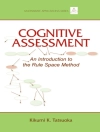Richly illustrated with clinical material, this book presents specific techniques for working with multisensory imagery in cognitive-behavioral therapy (CBT). Leading researcher-clinician Lusia Stopa explores how mental images–similarly to verbal cognitions–can trigger distress and drive maladaptive behavior. She guides the therapist to assess imagery and help clients to recognize and explore it. A range of interventions are described, including imaginal exposure, imaginal reliving, rescripting, working with self-images, and using positive imagery to improve well-being. Extensive sample dialogues and a chapter-length case example demonstrate the techniques in action with clients with a range of frequently encountered psychological problems.
قائمة المحتويات
1. An Introduction to Mental Imagery
2. Recognition and Assessment of Images
3. Using Imagery in Case Conceptualization
4. Laying the Groundwork for Imagery Interventions
5. Imaginal Exposure
6. Imaginal Reliving in Trauma-Focused Treatments
7. Imagery Rescripting
8. Transforming Images of the Self
9. Imagery as a Route to Safety, Compassion, and Positive Affect
10. Integrating Imagery in a Case Example
11. Troubleshooting
عن المؤلف
Lusia Stopa, DPhil, is Emeritus Professor of Clinical Psychology at the University of Southampton, United Kingdom. Dr. Stopa established Southampton as a center of excellence for cognitive therapy training and has directed both cognitive therapy and clinical psychology programs in the School of Psychology. She teaches and supervises mental health practitioners in evidence-based treatments, with a particular emphasis on imagery, and has a private cognitive therapy practice. She studied English literature before psychology and has always been interested in the narratives people create about their lives. Her innovative research focuses on how mental images can represent the self, and she has published widely on imagery and the self in social anxiety and other disorders. She is also examining how imagery can promote recovery and is investigating mechanisms to explain the effectiveness of imagery rescripting. In recognition of her contributions to the field of cognitive therapy, Dr. Stopa was invited to become a scholar at the Beck Institute for Cognitive Behavior Therapy in 2015.












